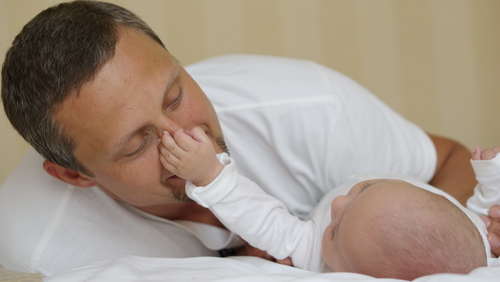It’s hard to raise children, every parent will tell you that there is no handbook and no instructions. But according to the mounting number of parenting groups, they may have been wrong. Internet forums such as Mums Net and countless Facebook groups are home to the ‘best’ ways to child rear with debates breaking out daily. In a time where mental health issues are worse than ever, the public is questioning how to ensure we raise our children with the least amount of emotional damage. Therefore, “cry it out” or CIO, a sleeping technique popular amongst families since the 1880s, is a hot topic amongst mums and dads. The practice of CIO has been met with controversy as psychologists now believe the method leads to emotionally unavailable and unbalanced adults. Research has suggested that the excessive stress-inducing crying brought on by the method can be linked to brain changes during a critical growth period.
Professor Hellen Ball PhD, the director of parent-infant sleep at Durham University, has published her own research surrounding “cry it out”: “Sleep techniques that employ prolonged crying to ‘teach’ an infant to sleep simply teach the infant that the mother will not respond as he or she expects. As a consequence, the infant cannot rely on the mother’s care and for survival, and he or she must conserve energy since the mother as a food source is now unpredictable.”
Although CIO can be confused for other approaches such as “bedtime fading” the techniques are vastly different. “Bedtime fading” is a modified CIO approach where a parent gradual delays the time it takes to respond to a crying infant spanning from 3 minutes upwards. This method is to ensure that although the child knows that they are present that they will not remove them from the bed apart from for feeding or changing.
I joined some popular parenting groups based in Cornwall to ask for some opinions on the matter. Lara Ward, a support worker from Saint Austell claimed that always responding to her son’s cries has helped him sleep more soundly: “He settles himself off to sleep most nap times and night time with no tears because he knows I’ll be there in a heartbeat.”
Kim Young, a mother from Surrey is also against the idea of “cry it out”, she said: “I wouldn’t dream of doing CIO. There is science to prove that there are negative effects and it goes against every instinct.”
Professor Ball claims that CIO not only has an adverse effect on the child but also on the parents participating. Mothers and fathers who resist the urge to approach their crying child often suffer “emotional and psychological stress”.
However, disabled mother Louise Whitham, from Congleton claims the CIO technique was a “Godsend” for her family. Whitham, who finds it psychically challenging to answer her child’s constant calls said that “cry it out” saved her “a lot of pain.” The mother claims that although her child cried for an hour on the first attempt, come the sixth night the technique had worked and her infant has slept through ever since. Whitham said she recommends the method to everyone because it “helps you to remember there is nothing up with the child, they are just crying and demanding your attention.” Whitham also mentioned she used a video monitor to ensure her child’s constant welfare.
Amelia Wicks, mother of four from London said “I think this can work in some situations. I don’t think it can work as a blanket rule though, as all children are so different and respond to different things.”
Despite receiving a variation of opinions it appears that the consensus is against CIO, with most mothers not wanting to risk possible mental health issues in the future.



